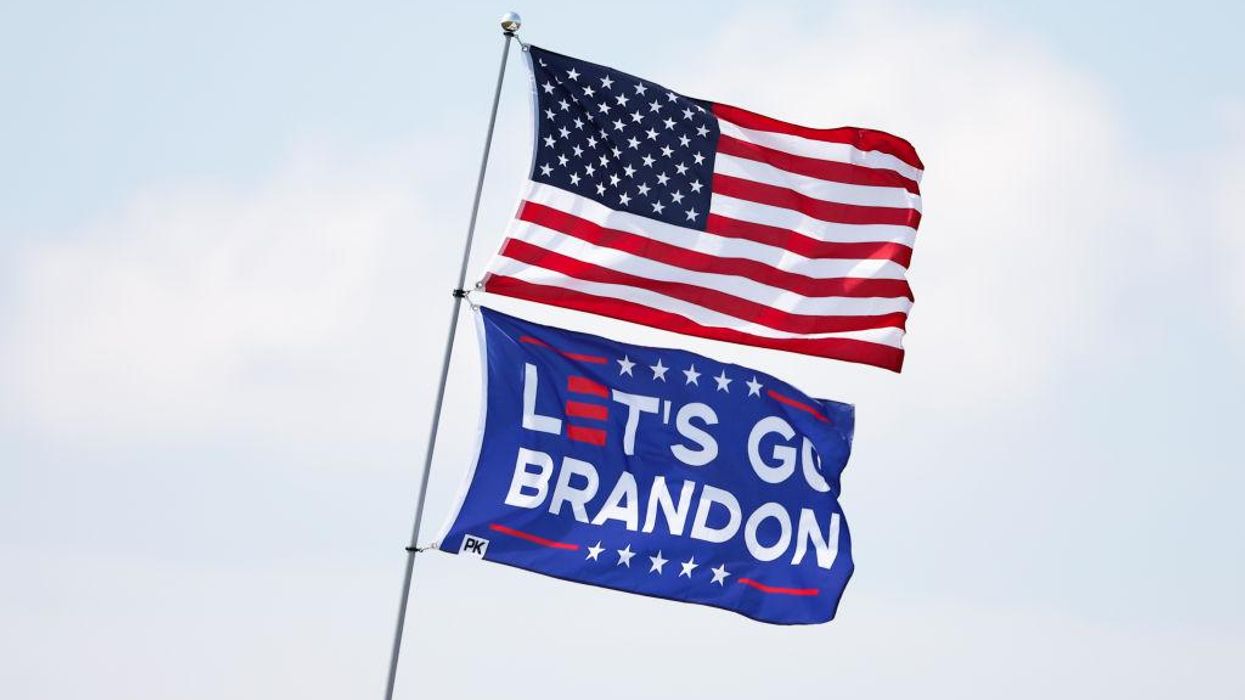
Photo by Rich Graessle/Icon Sportswire via Getty Images

The research firm Morning Consult recently published the results of research conducted over the course of the past five years, involving over 8.6 million U.S. voters. The results indicate that a drastic change has taken place in the American ideological landscape. The proportion of the American electorate that identifies as "very liberal," "liberal," or "somewhat liberal" has dropped significantly, from 34% to 27%.
Morning Consult's annual State of the Parties survey indicated that 73% of voters associate the "liberal" identifier with Democratic Party, and 70% identify the Republican Party with the "conservative" identifier.
Although fewer formerly liberal voters now identify with or as on the left, they have not necessarily migrated to the conservative camp, which is allegedly trending further to the right. Rather, many of the Americans abandoning the "liberal" camp are now identifying as "moderate" or have expressed uncertainty about where precisely they stand ideologically.
Democratic data scientist David Shor told Morning Consult: "The historical march has been that 'liberal' is gradually increasing as the secular, college-educated population has increased in a way that's been divorced from thermostatic forces," taken to mean reactionary steps and thinking taken by voters against whatever party happens to be in power. "If it's thermostatic backlash," said Shor, "thermostatic backlash affecting ideological identification is new."
According to the survey, 31% of white voters identified as "liberal" in 2017, whereas only 25% identified thusly in 2022. Although the share of liberals when accounting for education level dropped across the board, the most significant drop was among Americans without a college degree, a decrease from 27% to 20%.
The share of conservatives increased during the same five years from 43% to 45%.
The drop in the share of black voters self-identifying as "liberal" was far more momentous. Whereas in 2017, 49% of black voters identified as "liberal," that figure now stands at 34%. Unlike for white voters, where the change was significantly bigger among former liberals without college degrees, black voters have jettisoned liberalism regardless of their education level. There was a 17-point drop among those black voters without a college degree; a 9-point drop among those with bachelor's degrees; and an 11-point drop among those with post-graduate degrees.
An even larger trend downward was seen among Hispanic Americans. In 2017, 50% identified as "liberal." In 2022, only 34% identified as "liberal."
While there is a pronounced difference in ideological change in identification among racial groups, there is also a marked difference by age demographic.
\u201cMorning Consult: The share of young people \u2014 ages 18-34 \u2014 who identify as liberal has dropped more than the other age groups\n\n% who identity as liberal\n18-34 in 2017 - 47%\n18-34 in 2022 - 34% (-13)\n\nhttps://t.co/P4EjTWaAsn\u201d— InteractivePolls (@InteractivePolls) 1661058375
American voters ages 18-34 have shifted away from the "liberal" category by 13 points over five years — more so than other age groups. A closer look reveals that the share of white voters identifying as "liberal" in this age bracket has dropped from 42% to 33%; black voters from 54% to 32%; Hispanic voters from 55% to 37%; and those classed as "other" from 52% to 38%.
The 35-44 age bracket saw an 11-point decrease; the 45-64 group a 7-point drop; and 65+, only a 3-point drop.
Overall, voters identifying as Republican have become more "conservative," slightly less "moderate," and significantly less "liberal."
Republican pollster Patrick Ruffini told Morning Consult that "the Democrats are not necessarily a liberal party," but that "its elite actors are polarized." The "wokeness" of these elites and their policies are not properly reflective of "who their voters are."
Ruffini suggested that Republicans have before them an opportunity to embrace those voters who have migrated to the "moderate" middle and who reckon themselves to be "stranded" amid the current two-party system.
The political consequences are not theoretical. The Democrats' policies concerning parental rights, education, and critical race theory in Virginia were cited as being among the big drivers for Virginia voters' support for Republican Gov. Glenn Youngkin in the state's 2021 gubernatorial race.